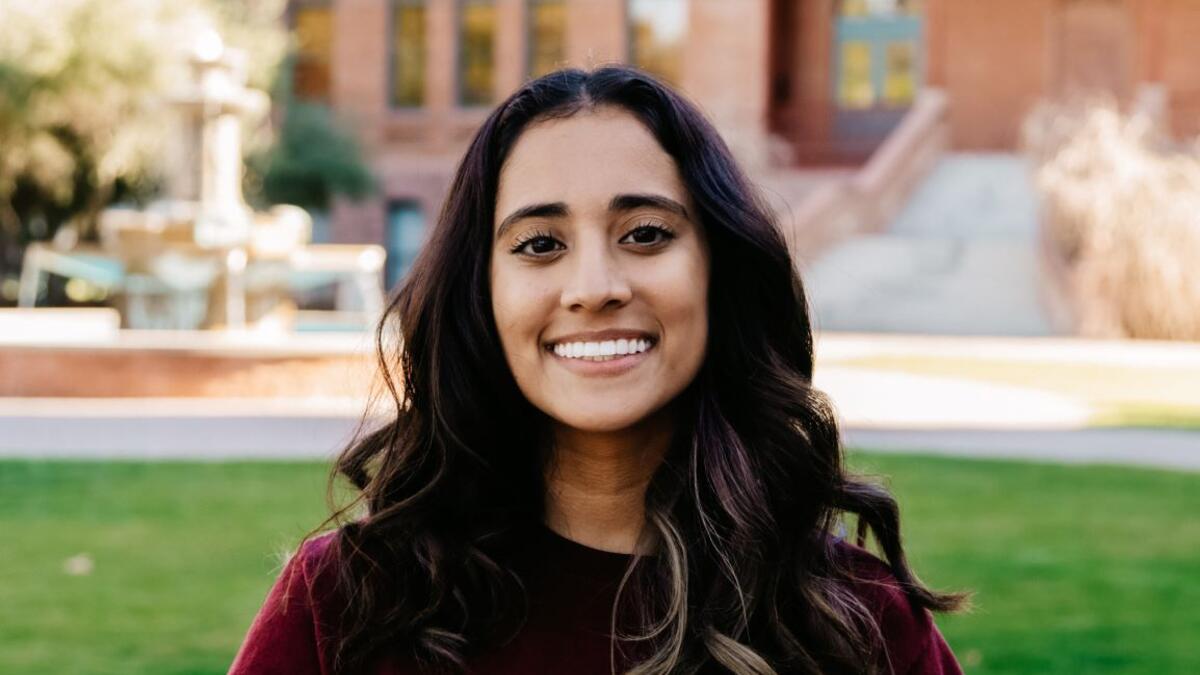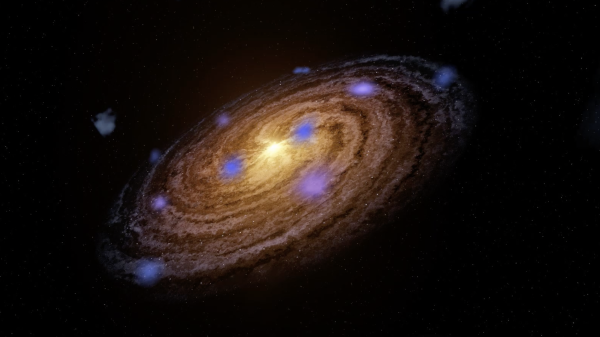Grad from Sun Devil family took advantage of all ASU had to offer

Ciera Babbrah.
Editor's note: This story is part of a series of profiles of notable spring 2021 graduates.
Ciera Babbrah grew up in a Sun Devil family. With both of her parents being ASU alumni and having a sister who currently attends the university, she knew that ASU could offer her endless opportunities.
“From student organizations, to community events, to research labs in every subject, ASU has a multitude of ways to get involved and explore what you are passionate about,” she said
Babbrah, of Paradise Valley, Arizona, graduates this May with a degree in biology and society from The College of Liberal Arts and Sciences, School of Life Sciences. She received the ASU Alumni Association Legacy Scholarship for two years and is a Barrett, The Honors College graduate.
For Babbrah, her passion lies in global and public health. While attending the annual Global Brigades trip to Honduras to build public health infrastructure, she had a significant realization.
“One of the community members said to us that Global Brigades and its student volunteers had done more for the health and wellness of the community in three months than their government had done for them in 35 years,” she said. “At that moment, I realized I wanted to pursue global and public health and help vulnerable communities.”
When asked what problem she would solve with $40 million dollars, she said she would tackle the social determinants of health, including economic stability, access to healthy food, social support, health coverage, education and housing. “I would use the money to improve these conditions for the most vulnerable,” she said.
When she wasn’t spending time at her favorite spot on campus, the second story balcony of Barrett’s Honors Hall, Babbrah could often be found taking advantage of the educational and social opportunities that ASU has to offer. She made it a priority to continue her education beyond the classroom.
“My freshman year, I was given the chance to join a research lab at the School of Human Evolution and Social Change,” she said. “Although it was new to me, I quickly adapted and fell in love with the work I was doing.”
Babbrah was also involved in the Global Impact Collaboratory at ASU, where she worked with her lab coordinator, Roseanne Schuster. “Aside from directing our research and leading meetings, Dr. Schuster provided career advice and worked with us on developing professional skills,” she said. “I am extremely grateful to have been able to work with her during my time at ASU.”
The most important piece of advice Babbrah would share with current students? "Take advantage of the opportunities on campus. Some of my best memories are from studying with my friends at the library and attending Devilpalooza or CultureFest.”
After graduation, Babbrah plans to work in public health research before returning to school to work toward a master's degree in public health.
More Science and technology

Cosmic clues: Metal-poor regions unveil potential method for galaxy growth
For decades, astronomers have analyzed data from space and ground telescopes to learn more about galaxies in the universe.…

Indigenous geneticists build unprecedented research community at ASU
When Krystal Tsosie (Diné) was an undergraduate at Arizona State University, there were no Indigenous faculty she could look to…

Pioneering professor of cultural evolution pens essays for leading academic journals
When Robert Boyd wrote his 1985 book “Culture and the Evolutionary Process,” cultural evolution was not considered a true…